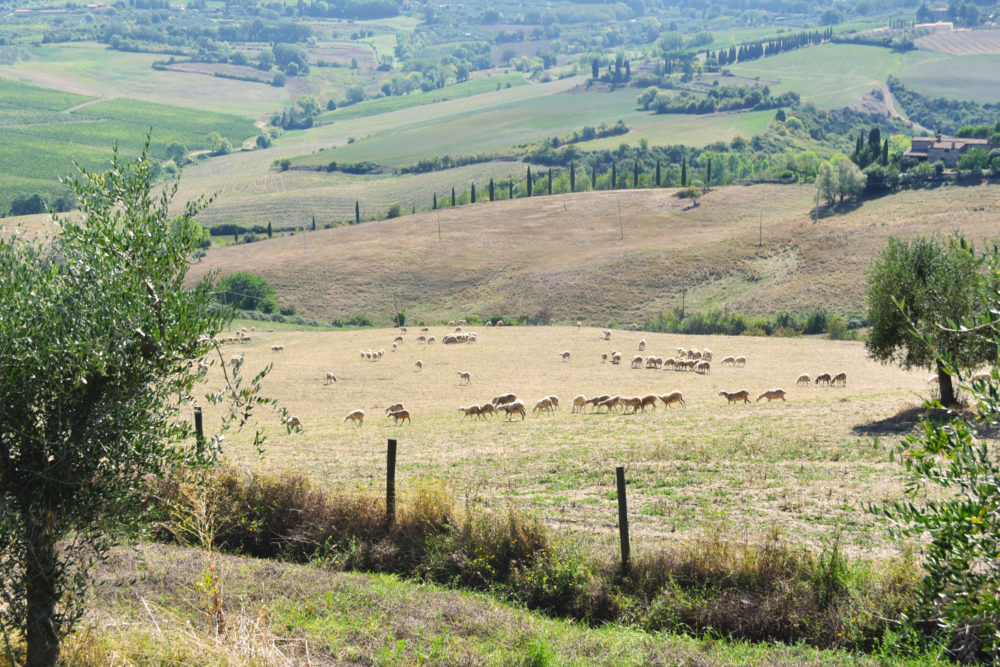by Roland McReynolds, CFSA Executive Director | Friday, July 12, 2019 –
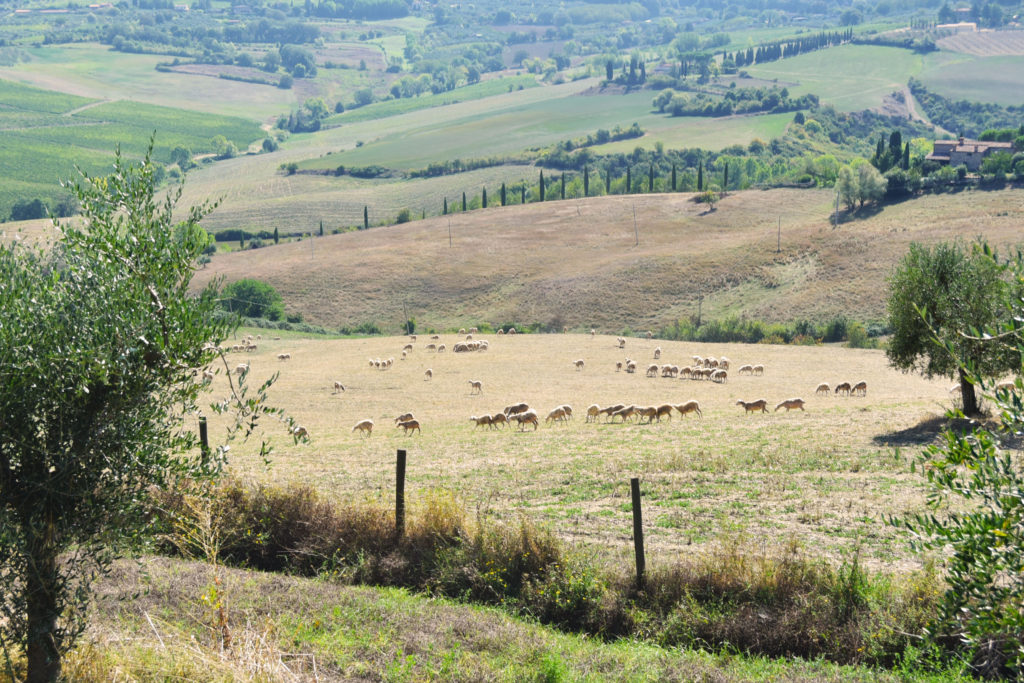
Last September, I had the incredible privilege of joining a tour of farms and food businesses in southern and central Italy. Organized by NC State animal science researcher and native Tuscan, Dr. Francesco Tiezzi, the tour explored farm and food manufacturing enterprises that help small- and mid-scale family farms in Italy to thrive and protect the environment. Europe has been grappling over the last 70 years with the same pressures that make farming a difficult career in the US—development pressure, global competition, corporate concentration—and yet has done a better job of keeping farm families on the land and rural communities healthy. The Italian study tour provided an up-close look at some of the things that make this success possible.
Our tour group included people who have worked in food and agriculture around the world, with students, faculty, and staff from NC State, plus several fellow CFSA members. We were all impressed with the variety of operations we saw: From a homestead creamery to one of the largest producers of buffalo mozzarella in the country; an on-farm pasta manufacturer to a craft brewery sourcing local grains; fishing and cheesemaking cooperatives to on-farm restaurants; a butcher shop to a winery. The common theme was entrepreneurial farmers and producers building on the foundations of their local food traditions through innovative marketing and scale-appropriate technology. Cooperation among producers was also a strong theme. For instance, producers of a traditional southern Italian cow’s milk cheese, caciocavallo, are banding together to set a higher ‘grass-fed’ standard for this product and forming a marketing consortium to promote the cheese at home and abroad.
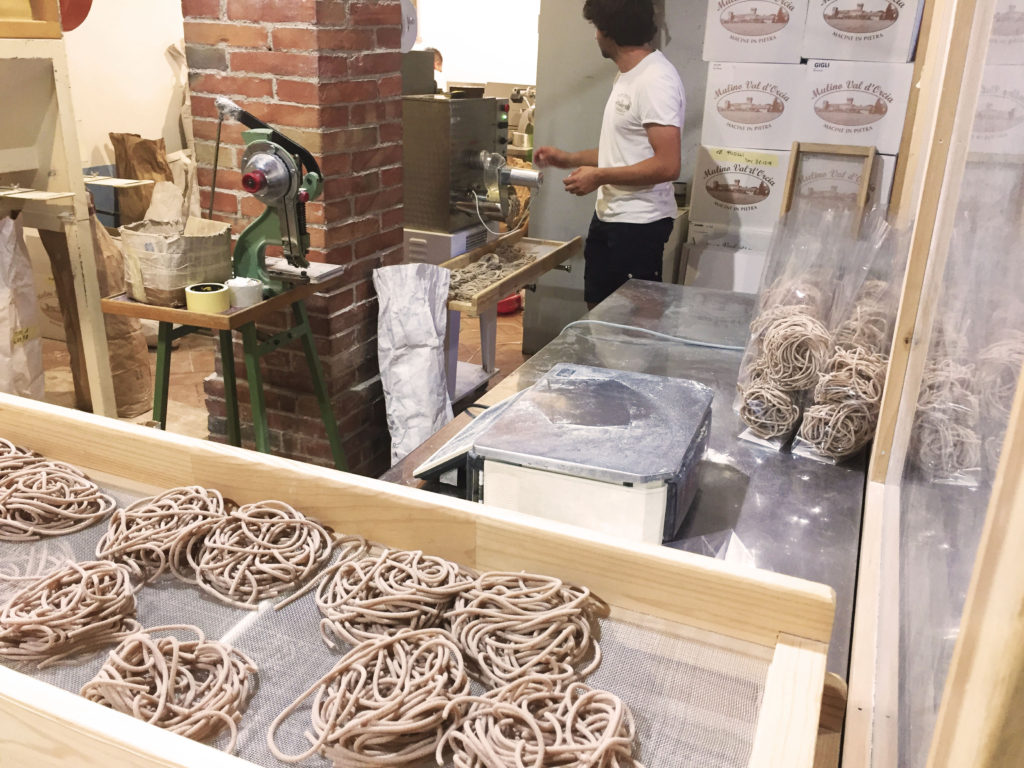
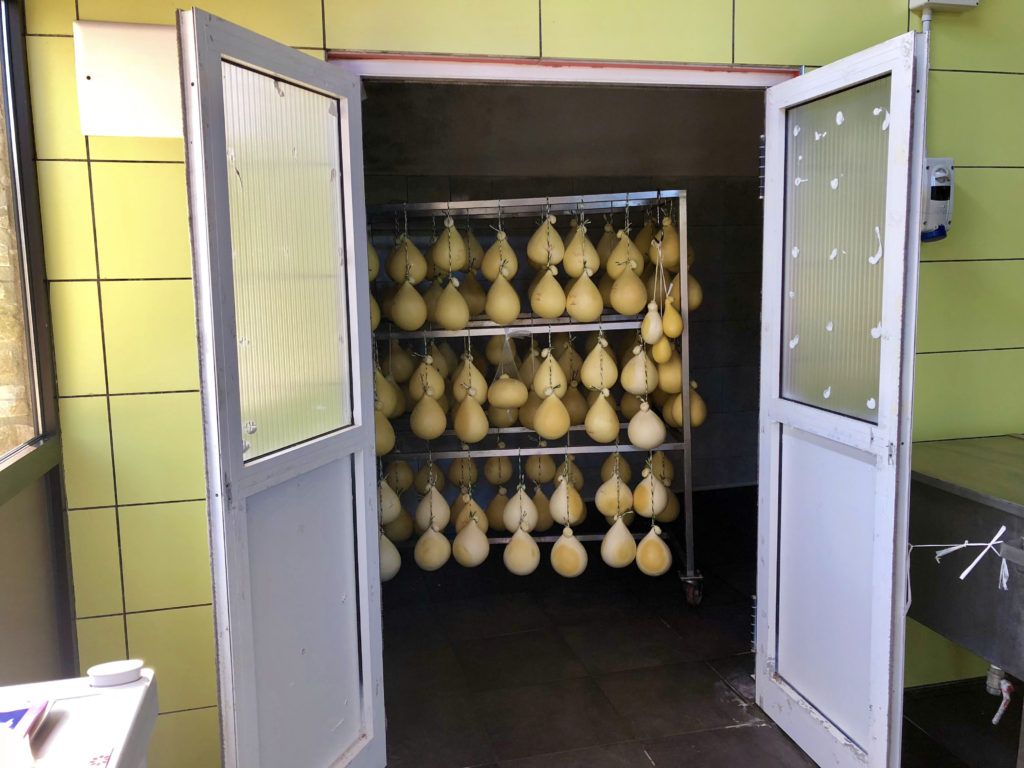
Environmental rules in the European Union are stringent, and none of the farmers we visited were exactly fond of dealing with regulations. Yet the EU’s common agriculture policy complements rules with investment programs that finance energy efficiency, conservation practices, and value-added marketing, and we saw businesses that were taking advantage.
Perhaps the highlight of the tour was a remarkable silvopasture farm in the heart of Tuscany, Tenuta Paganico, which attracts people from all over the world to participate in the farm’s agro- and gastronomic enterprises. This magical organic farm is an ongoing experiment in optimizing the production of its cattle, swine, and woodlands while taking aggressive measures to conserve soils and features—like so many of the farms we visited—on-farm lodgings, a restaurant, and retail store.
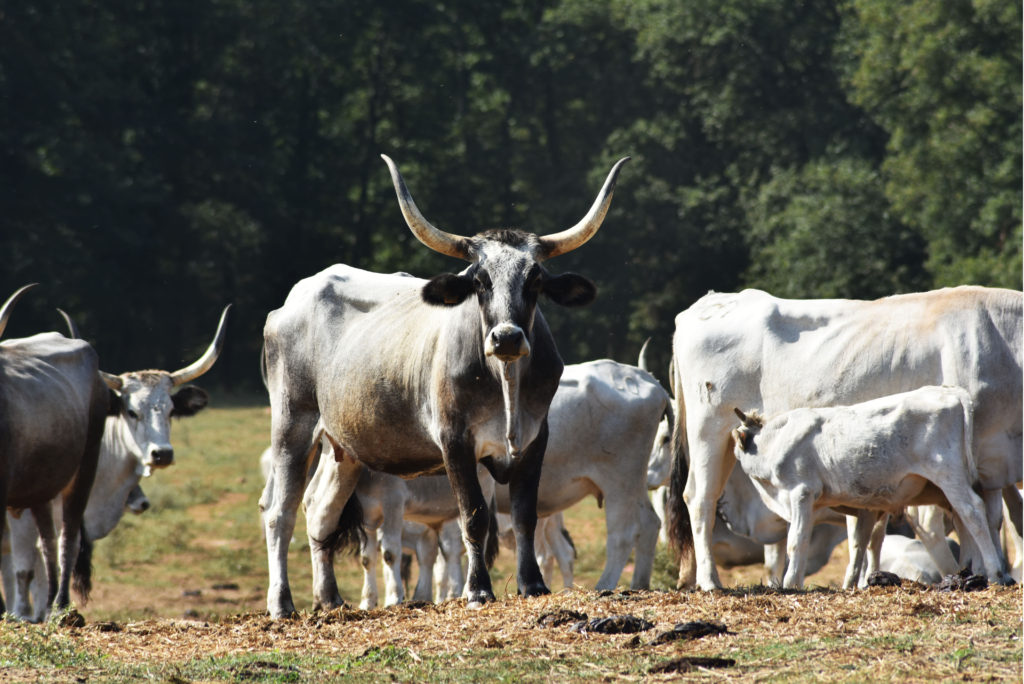
Dr. Tiezzi has been kind enough to write a series of blog posts for CFSA overviewing some of the amazing operations we visited, complete with pictures of the mouth-watering foods we enjoyed. It was fun for me to be reminded of the adventure through reading these articles, and if food and farm traditions in other cultures and climates interest you, I encourage you to take a look.
- A Closer Look: The Farms & Food of Central & Southern Italy (Pt. 1)
- A Closer Look: The Farms & Food of Central & Southern Italy (Pt. 2)
All-in-all, it was an inspiring trip that showed how it is possible to marry local foodways, organic practices, policy, and technology to sustain family-scale farming. We had such a good time that Dr. Tiezzi is organizing another trip for this fall. The 2019 tour will run from Sept. 28 to Oct. 6 and focus on Tuscany, with another outstanding lineup planned. You can get more information on the 2019 trip here.
All photos courtesy of Dr. Francesco Tiezzi


